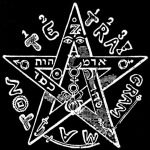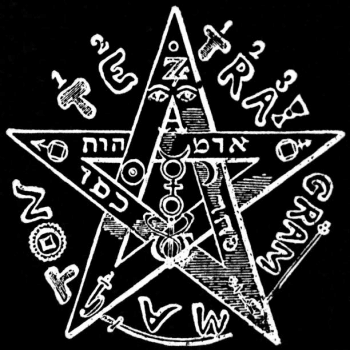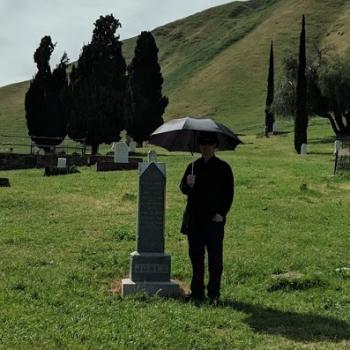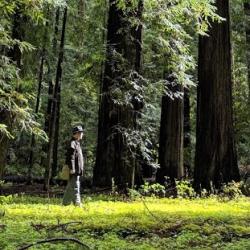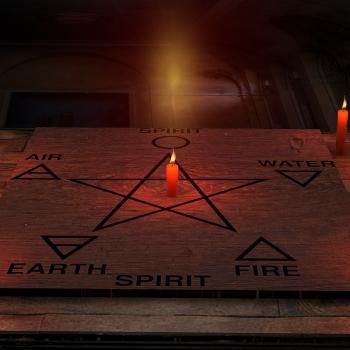“With great power comes great responsibility” always seemed like wishful thinking to me. Every day we see powerful people wandering through the world, failing to take responsibility. They hardly seem to have the first clue what they are doing.
But practitioners on the path of transformation know that power is not money or a flashy car.(1) It is the ability to change the world. If magic is our lever, then self-control is our fulcrum and self-knowledge is the counterweight we use to make the work easier.
Power is how we change the world. But that power will never fix anything unless we also have the personal power to change who we are.
How many people have you known who reach a point in life where they have “made it” but are just as miserable as they always were? How many times have you experienced that whole process where you spend sometimes years accomplishing a goal — only to find yourself just as empty when you are done?
There is more to building personal power than simply learning magical practices. Whether we are magicians, priests, or shamans, those of us who follow the path make progress by developing self-knowledge and learning self-control.
Power: Becoming the Decider
Self-cultivation does not have to be some mystical practice. There is certainly a place for that, but cultivation also covers cleaning your dishes, exercising your body, and taking care of things that need to be taken care of.
Any practice that builds our personal power is a form of self-cultivation. Done right, everything from brushing our teeth in the morning to getting a graduate degree counts. Each of these things has a part in building us into something more.

We live in a world that could not care less if we have power or not. Sometimes we find ourselves in relationships, in jobs, in life, with people who would rather we had no power at all. And really, it is a lot less work and worry to just stay the way we are.
But there is also a part of us that refuses to stay down. Maybe it is a quiet whisper, perhaps a demanding voice, sometimes a fire rising up the spine. When we are down, and think we cannot move another inch, it commands us, “rise!”
As a practitioner, self-cultivation sometimes involves waving your hands in the air and chanting in barbarous words. (True story!) But that is not the whole of it; cultivation is about listening to that deepest voice, and learning to trust it.
Ethics: Deciding Well
As self-cultivation grows our power, we have to learn to make better decisions. The alternative, it seems, is experiencing the unintended consequences of our choices.
Most people do not need to understand ethics. When we are without power, being “nice” to others is all the guidance we need.
People without internal power have few impactful decisions to make. Too often, their choices are irrelevant. However much they agonize, the results are dictated by circumstances.
Then, as we grow in power, we have to learn when and how to hold back. The alternative is to wander through life like a bull in a china shop, forever blundering into things. In short, the more power we have the more we need to understand slippery subjects like ethics.
Power and Ethics
Ethics is about more than making the “right” decisions. It is also about making decisions that help us, as magical practitioners, get along in society.
What is the legitimate use of magic? How does a practitioner choose what is “right” and “wrong”? There are no blanket answers, but there is one key ingredient that will help it all make more sense. In the use of power, magic is not a special case.
The rules that dictate right action apply equally to theft through magic as they do to the “five-fingered discount.” Killing a human through magic is exactly as wrong as killing with a firearm.
Simply, the use of magic is the use of force, of power. Magic neither incurs extra moral debt, nor abrogates the responsibility of the practitioner. The universe does not handle magic differently.
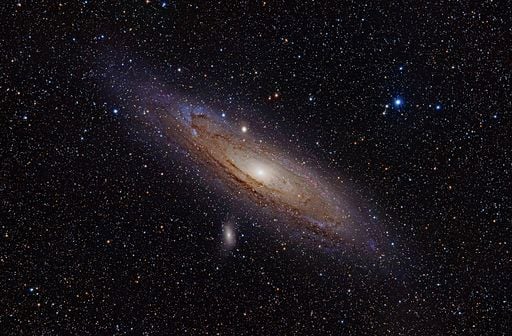
Morals are a human construction to describe the workings of the universe. Just as a mathematical formula describes the passage of a ball through space, morals are an attempt to describe ways of acting that will move us harmoniously in the world.
Magical morality and ethics take into account three further features: the three-fold law (or karma), universality of spirit, and freedom to act.
The Threefold Law: What Goes Around Comes Around
The “threefold law,” common in popular Wicca, states that whatever we put out into the world (magically or otherwise) comes back to us amplified three times. It is the golden rule, but with punitive force behind it.
In any literal interpretation, this threefold rule simply cannot be true. If it were, the universe would have an ever-expanding cycle of cause and effect, effect, effect.
Instead, we can stick with “the one-fold law.” It is the “what goes around, comes around” caveat on action.
However, I do not believe that the occult community should discard the threefold law entirely. Human nature being what it is, there is room for a soft interpretation of the rule.
The three-fold law is experiential. When the things you do happen back to you, they will seem three times worse, or better, than when you put them out there.
Universality of Spirit: Everyone Is in the Game
It is a common trope in the West that magic is something special and different. It is part of our fiction, but that is only a reflection of people’s basic assumptions about the world.
The truth is that magic is not something apart from everyday life. The rules of manifestation that magic uses are not special to practitioners. They are just as true for everyone.

In a world we recognize as simultaneously physical and spiritual, practitioners are not special for performing “magical” acts. These same forces shape everyone’s realities.
So if the rules are the same, there are still two things that set practitioners apart. One is the desire to harness this natural mechanism to change our lives. The other is the measure of responsibility we take for doing so.
Freedom to Act: Do What Thou Wilt
There is no way to escape the consequences(2) of our actions, and everyone and everything is subject to the exact same reality. Beyond that, there are no rules about what we can do or have to do.
With those realities in mind, we are free to do whatever needs to be done — and accept the consequences. Of course, those consequences can suck.
As we grow in power and begin to take action in the world, those actions will have results. Some will be intended, and some not. Some results, we will want to avoid. To do that, it becomes imperative that we develop self-knowledge and self-control. These two characteristics are flip sides of the same coin.
Expanding our awareness and power, we inevitably learn things about ourselves that are not pretty. Self-knowledge therefore needs to be tempered with self-control. While we might be divine beings, we are also simple primates. Not one or the other, but both.
If we want to live lives that are not simply chaos, pushed this way and that by whatever catches our attention, the solution is to develop depth of character. Without this depth, the lever we use to change the world can only be used as a stick to beat it into submission.
(1) I am not against money or flashy cars. Such things are not my shtick, but that is just me. “No fear. No distractions. The ability to let that which does not matter truly slide.” – Chuck Palahniuk
(2) There is this really interesting contrast, in English, between “results” and “consequences.” The two words are essentially identical except one of them is for things we like, and the other we do not. Both imply a broader concept of “cause and effect.” Any depth in understanding magic must always delve into these ideas. Doing magic is about taking advantage of hidden, or occult, forms of cause and effect. The “right” use of power is about deeper understandings of how the universe works.

